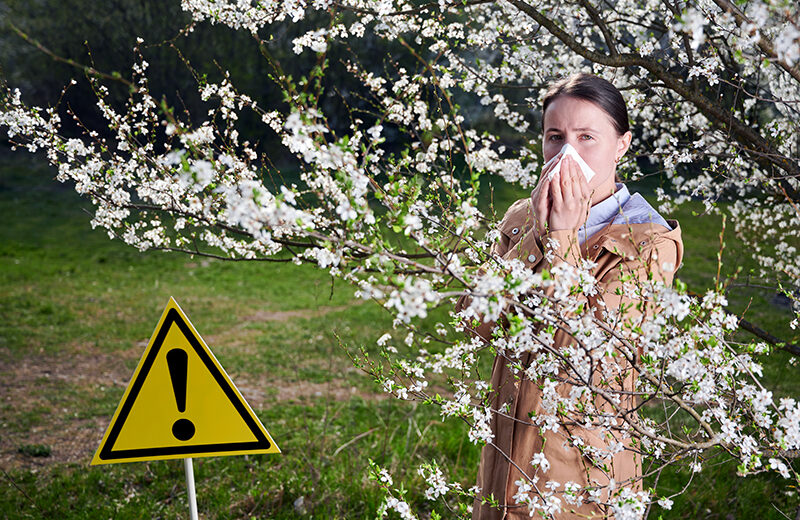Allergic reactions such as a runny nose, itchy eyes, congestion, and stuffy ears are typically attributed to allergy season. However, it is important to consider whether allergies could also be responsible for sensations of ear fullness and a diminished sense of hearing. Allergy-related symptoms may encompass swelling, itching, and a feeling of fullness within the ears. While dealing with hearing loss and allergies, these symptoms can be distressing for anyone, they may pose particular challenges for those who use hearing aids.
Hearing Loss and Allergies: How Allergies Can Impact Hearing Loss
The immune system reacts to allergens by releasing histamine, which initiates an allergic response. This response can manifest as symptoms including sneezing, itching, swelling, and nasal congestion. Such symptoms may also lead to temporary conductive hearing loss, which occurs when an obstruction like the overproduction of fluid or earwax impedes the passage of sound through the ear and into the small bones of the middle ear.
How The Ear Is Affected By Allergies
The Outer Ear
An allergic skin reaction, commonly called dermatitis, may result in itching and swelling of the outer ear and the ear canal. Specific individuals might be sensitive to products such as laundry detergents, fragrances, or jewelry. Additionally, some may experience allergies to household pets or seasonal pollen.
The Middle Ear
When inflammation causes an obstruction in the middle ear, the eustachian tube may experience difficulties draining effectively. This obstruction can result in the accumulation of fluid and pressure, leading to a sensation of fullness in the affected ear. Furthermore, such fluid buildup creates an optimal environment for bacterial growth, which may increase the likelihood of developing a middle ear infection. The accumulation of fluid may also contribute to balance disturbances, including vertigo, resulting in sensations of dizziness. This condition is also called eustachian tube dysfunction.
The Inner Ear
Allergies may also contribute to hearing loss in patients with Meniere’s disease.
Hearing Aids And Allergies
Allergic reactions to pollen can lead to discomfort and obstruct the microphone ports of many hearing aids, affecting their functionality. We advise to replace the covers of these microphone ports as needed. Additionally, routine cleaning of hearing aids is strongly recommended, especially during the allergy season. Should individuals experience itchiness in their ears attributed to their hearing aids, we advise them to consult a hearing care provider for appropriate treatment.
Allergic Reactions To Hearing Aids
Although rare, some patients may experience allergic symptoms to their hearing aids. In such cases, we recommend a consultation with a hearing health professional. Potential causes of these kinds of reactions may include improper fit, wax buildup, dry skin, moisture accumulation in the ear, or sensitivity to the materials used in the earmold or dome. Hearing aid manufacturers provide alternatives to accommodate individuals with sensitivities, including hypoallergenic materials or specialized coatings designed to enhance comfort and minimize reactions.
If you are experiencing hearing loss that persists significantly beyond the resolution of other allergy symptoms, or if there is accompanying ear pain, it is advisable to consult an otolaryngologist (ENT specialist) to assess whether the condition necessitates long-term treatment. For those who need a reliable hearing health professional, we invite you to contact our office and make an appointment with us at your earliest convenience.





